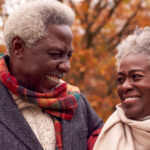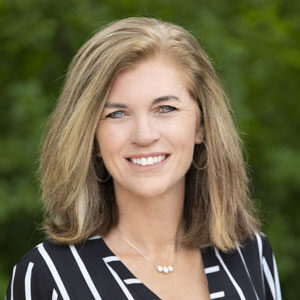

I was 17 when my parents told me and my older brother they had been going to counseling for the last few years, were still unhappy, and decided to separate. They didn’t know if the separation would lead to a divorce or not, but they felt this was the next step to take. They weren’t telling my youngest three siblings. I had no idea how my brother, who was just younger than me, would find out since he already lived away from home.
Since Dad worked in another city, he’d be staying overnight there during the week instead of coming home. Mom was taking art classes and rarely was at home anyways, so not much changed on her end. I remember feeling shock, sorrow, anger and an odd sense of validation in finally having an explanation for the tension and unhappiness that had permeated our home for as long as I could remember. However, the memory of one parent sobbing after telling us, while the other displayed ice cold indifference is seared into my memory as strong as anything else I’ve experienced. After that particular night, only photos or stories friends tell me bring back memories of my senior year of high school. I know I went to school and to work, and only came home to sleep a few hours in between days.
Three years later, my parents got to the point where the divorce was imminent and they told my youngest three siblings. For me, it was three years of sitting on a time bomb, never knowing when it would go off. And the night my parents told the youngest, I had a front row seat – in the name of moral support – to watch their own shock, anger and sorrow unfold. Two steel walls went up and one little face crumbled and broke down into heart wrenching sobs.
This all occurred in the late 80’s and early 90’s, a time when marriage therapy was hardly acknowledged as a valid therapeutic modality. The research available on marriage was scant and poorly done. The exceptions to this were so new, they were not yet well known by either professionals nor by the public.
The culture at the time was emancipating in droves “stay at home” moms who were assumed to have been oppressed by their husbands, children and society into their obligatory roles. Men were assumed to be controlling, abusive S.O.B’s almost without exception. The prevailing philosophy at the time was “If Mom is happy, the children will be as well. ”
So if a divorce made her happy, if an affair made her happy, if putting her children in daycare so she could break out and follow her dreams, then children would pick up on this and celebrate mom’s happiness and be happy, too. Funny how I can’t recall any philosophies on how dad’s happiness quotient would affect the children.
Couples went to psychologists who had been trained in individual treatment models, out of desperation for something, anything to help. More often than not, the treatment was unhelpful at best, damaging at worst. It seems, at least in part, that my parents’ marriage was greatly damaged by their experience in marriage counseling.
The version I heard over the years of how “therapy” unfolded for them would today be considered unethical. After years of seeing an individual therapist alone, Mom invited Dad to join her for marriage counseling. After listening in detail to only her version of the marriage, the therapist had already formed his own image of Dad and proceeded to berate and scold him for his old fashioned, traditional, oppressive ideas and expectations, causing her such misery. Any hope there might have been for the marriage was obliterated by the prejudices of a therapist immersed in the culture of the day, the ignorance of the profession at the time, and by a lack of good judgement of professional boundaries.
Of course, the therapist did not cause their divorce. But neither did he help them. I can’t help but wonder how things might have turned out had he been trained in the science of marriage and the ethics of couple counseling. For example, the science-evidence shows that partners must establish a foundation of friendship, accept influence from their spouses, and honor one another in order to have a happy marriage. Also, an ethical therapist cannot work with a couple in marriage therapy after he or she has already met with, and formed a relationship with one partner.
To this day, silence and distance is the norm in our family. Lines of loyalty have been fiercely drawn long ago, sides taken, victims and perpetrators defined. It feels dangerous to approach one another on any topic even remotely touching upon feelings, thoughts, memories or perceptions, much less opinions. When we do get together, the old familiar tension comes back and everyone puts their “Stepford Wives” smiles back in place. Whatever healing has happened for each of us has occurred separately, unknown to one another.
For me, having my foundation utterly and absolutely shattered to smithereens was a blessing in disguise. While it was devastating and confusing at the time, I realized later that had my parents not divorced, I might have assumed they had a “good” marriage and that the atmosphere in our home was “normal”. I might not have taken the time and effort to re-examine every single thing I’d ever been taught or believed to be true, carefully picking out of the shards the pieces I wanted to keep. I might have never re-created – through careful study, observation, education, and pondering – a healthier, happier image of marriage and family life.
I might not have put so much effort and time into my own marriage and family, knowing that nothing is guaranteed. And I likely would not have pursued a profession as a marriage therapist, determined to sift relentlessly through the myths and truths of what really works in marriages and relationships, using scientific, evidence-based methods with my couples so they can be assured of at least a chance for healing based on proven truths.
Divorce is devastating to all affected by it. But devastation is not always “all bad”. As we all see in life around us, sometimes things must be destroyed for something else – even better, healthier, and happier – to emerge. I don’t wish the experience of divorce on anyone – particularly children. But I also believe in second chances to create love, life, and happiness.





